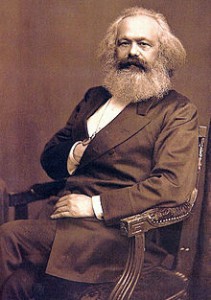 To Sidney Hook
To Sidney Hook
C/o Brown Shipley & Co. 123, Pall Mall, London
Rome. April 15, 1933
Dear Mr. Hook
Your Marx—for which I am much obliged—has helped me to understand why years ago, in attempting to read Das Kapital, I was stopped short at the theory of value, and dropped the thing as hopeless. It was not meant, you explain, to describe the facts, but to preach an ideal: things ought to be valued and paid for according to the labour they have cost. I know these are not your words, but I have boiled it down to that for my own consumption. And that—though morally and politically it is far from my own feeling—reconciles me to Marx theoretically: which is very satisfactory, because I otherwise entirely agree with him in his historical materialism—though mine is not “dialectical” but common or garden materialism—and also with his low opinion of capitalism. However, here, as in the theory of value, it seems to me that we must regard the position given to the subject, as well as the animus of the discussion, as dictated entirely by a political purpose. Marx wants to overthrow capitalism, and simply turns all the batteries of his learning and zeal upon it for that object. In other words, he writes to produce passion. To my own mind, absurd as capitalism is—I live on invisible and unearned money myself, I don’t know why or how—it seems to be only a technical device accompanying industrialism: and the latter is the radical evil. I wish some day you would write another book to show that the whole notion of man producing things is grotesquely superficial: man only “improves” land, cattle, poultry, fruit, and crops; nature alone produces; and the things man constructs, like houses and clothes and ships, are produced by nature through man, who is an integral part of nature. Isn’t this simply economic materialism? And the value of all these things lies entirely in their uses, and not at all in the labour which may be required to make them available. This labour in fact subtracts from their value, in so far as it is forced labour: and this is the crying sin of our industrialism: that it forces millions of men to labour hopelessly in order to supply themselves—or the capitalists among them—with a lot of rubbish.
From The Letters of George Santayana: Book Five, 1933–1936. Cambridge, MA: The MIT Press, 2003.
Location of manuscript: Morris Library, Southern Illinois University at Carbondale.
